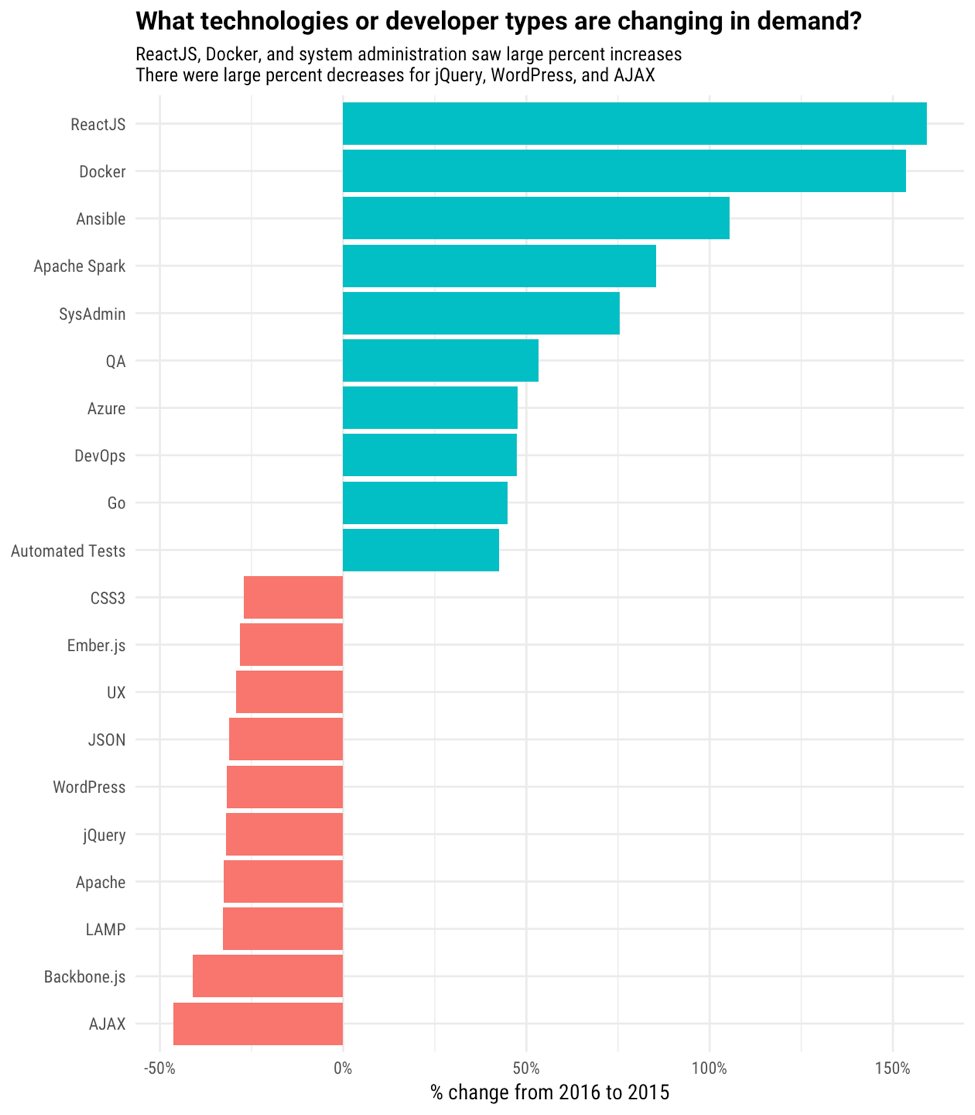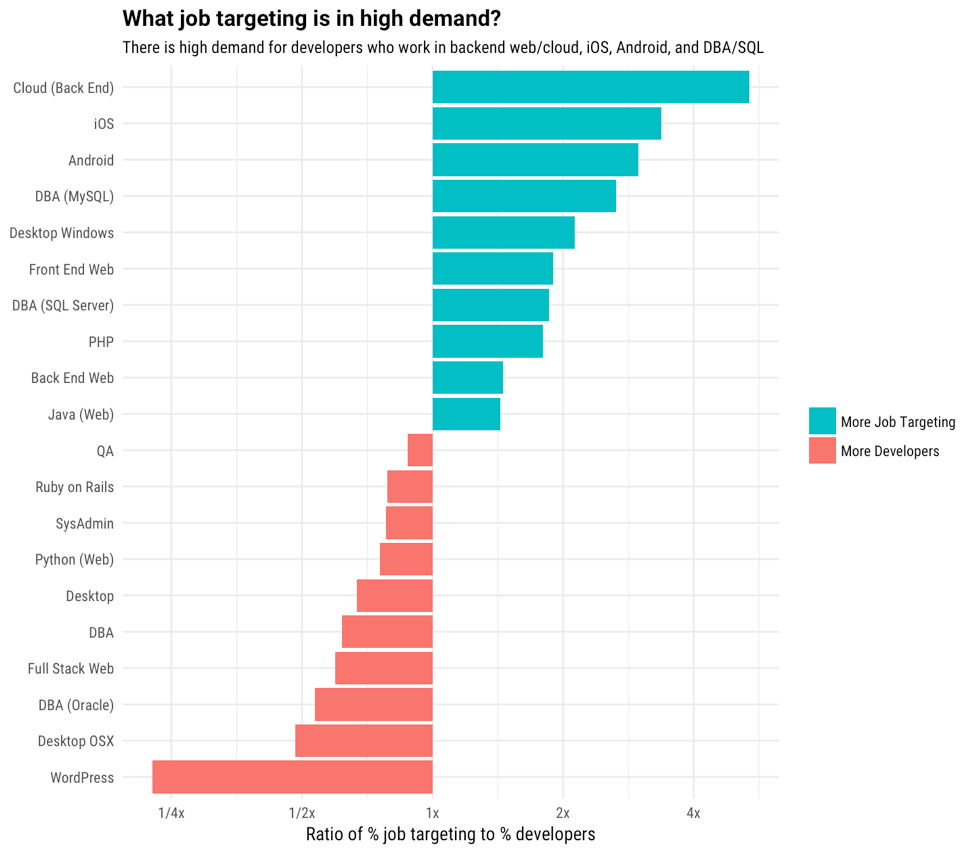Stack Overflow published its analysis of 2017 hiring trends based on the targeting options employers selected when posting to Stack Overflow Jobs. The report, which compares data from 200 companies since 2015, ranks ReactJS, Docker, and Ansible at the top of the fastest growing skills in demand. When comparing the percentage change from 2015 to 2016, technologies like AJAX, Backbone.js, jQuery, and WordPress are less in demand.
Stack Overflow also measured the demand relative to the available developers in different tech skills. The demand for backend, mobile, and database engineers is higher than the number of qualified candidates available. WordPress is last among the oversaturated fields with a surplus of developers relative to available positions.
In looking at these results, it’s important to consider the inherent biases within the Stack Overflow ecosystem. In 2016, the site surveyed more than 56,000 developers but noted that the survey was “biased against devs who don’t speak English.” The average age of respondents was 29.6 years old and 92.8% of them were male.
For two years running, Stack Overflow survey respondents have ranked WordPress among the most dreaded technologies that they would prefer not to use. This may be one reason why employers wouldn’t be looking to advertise positions on the site’s job board, which is the primary source of the data for this report.
Many IT career forecasts focus more generally on job descriptions and highest paying positions. Stack Overflow is somewhat unique in that it identifies trends in specific tech skills, pulling this data out of how employers are tagging their listings for positions. It presents demand in terms of number of skilled developers relative to available positions, a slightly more complicated approach than measuring demand based on advertised salary. However, Stack Overflow’s data presentation could use some refining.
One commenter, Bruce Van Horn, noted that jobs tagged as “Full Stack Developer” already assume many of the skills that are listed separately:
I wonder how many of these skills are no longer listed because they are “table stakes”. You used to have to put CSS, jQuery, and JSON on the job description. I wouldn’t expect to have to put that on a Full Stack Developer description today – if you don’t know those then you aren’t a Full Stack Web Developer, and I’m more interested in whether you know the shiny things like React, Redux, and Angular2.
It would be interesting to know what is meant by tagging “WordPress” as a skill – whether it is the general ability to work within the WordPress ecosystem of tools or if it refers to specific skills like PHP. Browsing a few jobs on Stack Overflow, WordPress positions vary in the skills they require, such as React.js, Angular, PHP, HTML, CSS, and other technologies. This is a reflection of the diversity of technology that can be leveraged in creating WordPress-powered sites and applications, and several of these skills are listed independently of WordPress in the data.
Regardless of how much credibility you give Stack Overflow’s analysis of hiring trends, the report’s recommendation for those working in technologies oversaturated with developers is a good one: “Consider brushing up on some technologies that offer higher employer demand and less competition.” WordPress’ code base is currently 59% PHP and 27% JavaScript. The percentage of PHP has grown over time, but newer features and improvements to core are also being built in JavaScript. These are both highly portable skills that are in demand on the web.



If there were really no demand for WordPress developers, I would not be so busy. But there may not be that much demand for the kind of developers who hang out on Stack Overflow’s job board.